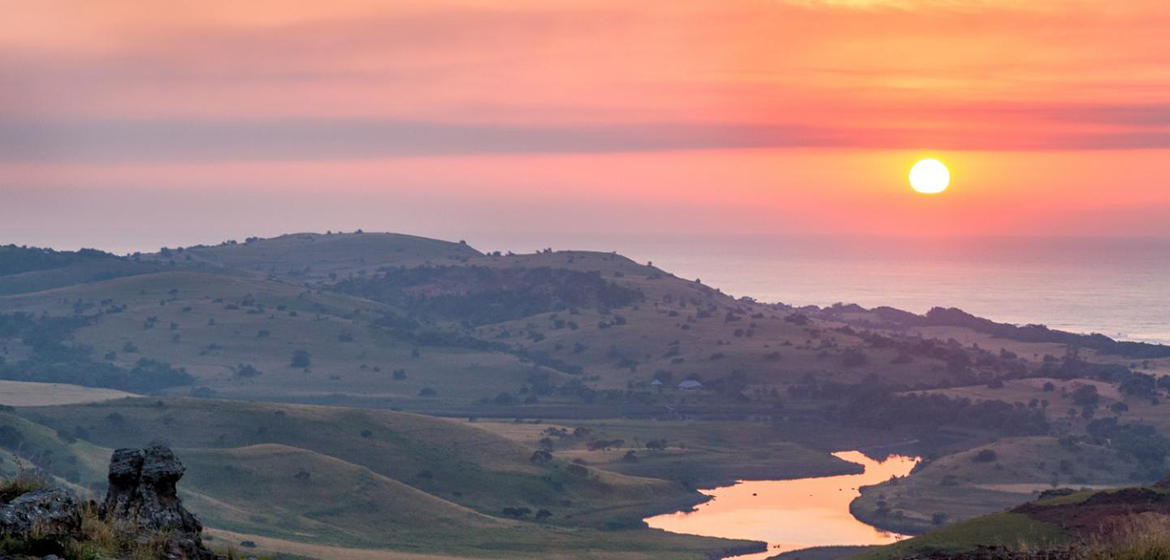A court has ruled that companies must first seek permission from local communities if they plan to mine on their ancestral land. This represents a new achievement in land and mining rights for South Africa.
On 9 December 2018, the world will celebrate the 20th anniversary of the , with International Human Rights Day following a day later. It is therefore fitting that this historic achievement for environmental defenders and the community of Xolobeni came when it did, and that the principle of Free Prior and Informed Consent has been upheld for communities and indigenous peoples’ in South Africa.
Xolobeni is home to the Umgungundlovu community, and some 70 to 75 households comprising more than 600 people. The land they live on provides the community with food and grazing for their livestock, water, firewood, medicinal plants as well as their livelihoods be it agriculture or tourism. Xolobeni is not just home to the living; it is the final resting place of many of the community’s ancestors. The land has deep spiritual, religious and cultural importance.
Thus, when a large open-cast titanium mine was planned in the area, that would displace the community and degrade the land, the community formed the Amadiba Crisis Committee to coordinate the fight against the mine. Formed in 2007, for over a decade the community has fought off the often severe acts of intimidation, threats and even alleged murder levelled against them, to finally have their rights protected and respected in November 2018.
The Committee’s former Chairperson, Sikhosiphi “Bazooka” Rhadebe, was killed in front of his teenage son in 2016. Nonhle Mbuthuma, who took over from him, states that Rhadebe told her a few hours before his death that he was the top priority on a hit list of those who opposed the mine. Nonhle was also on the list and has been in and out of hiding since then. No arrests have been made concerning Rhadebe’s murder.

Nonhle Mbuthuma - Xolobeni, South Africa - 25th February 2018
Nonhle stated earlier this year, “What we say doesn’t seem to matter.” South African courts have now declared that it does, as a legal fact, matter.
A historic court case
Members of the Umgungundlovu community brought a case to the South African court for the right to consult and consent to projects on their customary land. “At its most fundamental, this case is about who gets to decide if [the company] TEM will be able to mine. Is it the community, which has lived there for centuries? Or is it a foreign mining company?” states court papers. The defenders argued that “communities… that have an intimate cultural connection to the land, and depend on it for their economic, physical and spiritual survival, should have no more rights than any other owner” and that, “Without free, prior and informed consent, they are at real risk of losing not only rights in their land, but their very way of being. That is why international law obliges South Africa to grant mining rights only if the [community] Applicants grant their consent.”
The Judge agreed and the court ruled that the community must not be deprived of their land without their consent.
Judge Annali Basson also concurred with the community that projects similar to the planned Xolobeni mine disproportionately affect local and indigenous communities and have a recorded history of harming multiple aspects of their lives.
What does this court case mean for others?
“We’ve set a precedent for all other communities facing this situation across Africa and the world. Until now, mining has been imposed on us. This judgment is a tool for communities to protect their land.” Nonhle, who was also nominated for a Front Line Defenders Award in 2018, said following the judgement.
Previously, consultation rather than consent has been practised and touted, not only in South Africa but globally, as the way to include people in development projects on their communal or ancestral land. Moreover, consultation has often been artificial—affected communities have historically been unable to contribute to real change and instead are offered meagre compensation that does not always materialize. A mining-affected community will now no longer be told how a project will proceed, instead they will be asked how it should do so.
The case provides legal precedent that many can use to place the needs and voices of those most impacted by mining or similar activities at the heart of decision-making. UN Environment joins numerous international, regional and local organizations in supporting the community of Xolobeni, and other communities in similar situations, and in demonstrating that Free, Prior and Informed Consent is integral to: ensuring equity, fairness and development for all; fulfilling environmental rights; meeting Indigenous and community rights; and supporting human rights defenders.
“Mining-affected communities often bear the immediate social and environmental impacts of externalized mining costs. This case is incredible and encouraging for all of us in that it is a greater lesson and example, beyond mining issues, to recognize and encourage the role of communities in decision-making, implementation and course correction, as they can highlight when policies are not working or gaps persist,” said Angela Kariuki of UN Environment.
Source:
Related to SDG 16: Peace, justice and strong institutions and SDG 13: Climate action



